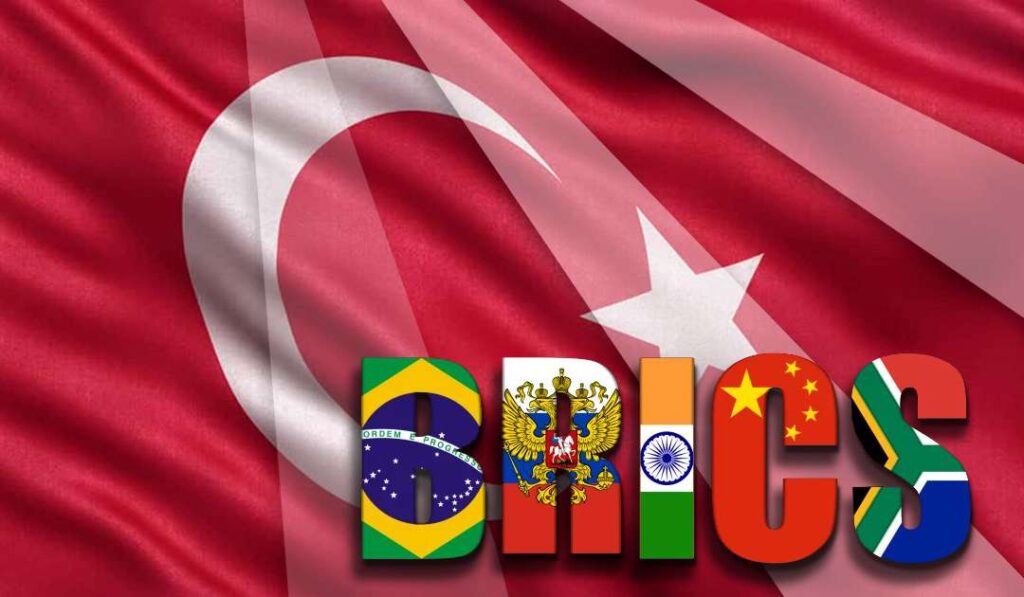
In a move with significant geopolitical implications, Turkey has formally submitted its application to join the BRICS grouping of emerging economies, comprising Brazil, Russia, India, China, and South Africa. The announcement, made on September 2, 2024, underscores Turkey’s desire to diversify its economic and political partnerships.
Turkey Seeks BRICS Membership, Signaling Shift in Global Alliances
Background and Motivations
Turkey’s bid to join BRICS comes amidst stalled EU membership talks and growing tensions with Western powers. President Recep Tayyip Erdoğan has expressed frustration with the slow pace of EU accession negotiations and has sought to strengthen ties with Russia and China. This move may be seen as a strategic pivot, aimed at reducing Turkey’s dependence on Western alliances.
Implications and Analysis
Turkey’s potential membership in BRICS has far-reaching implications for global politics and economics. If accepted, Turkey will join a bloc representing over 40% of the world’s population and 25% of global GDP. Key consequences may include:
- Enhanced economic cooperation and trade opportunities
- Shifts in regional power dynamics, particularly in the Middle East and Europe
- Potential tensions with NATO and EU member states regarding Turkey’s allegiance
- Increased influence for Turkey in global governance and economic decision-making
International Reaction
The U.S. and European Union have expressed concerns regarding Turkey’s decision, emphasizing the importance of Ankara’s adherence to EU values and foreign policy preferences. As Turkey navigates this new alliance, its relationships with Western powers will be closely watched.
Next Steps
The BRICS Summit, scheduled for October 22-24 in Kazan, Russia, will consider Turkey’s membership application. If successful, Turkey will join a growing list of countries seeking to expand their economic and political influence through BRICS.
We will continue to monitor this developing story and provide updates as necessary.
